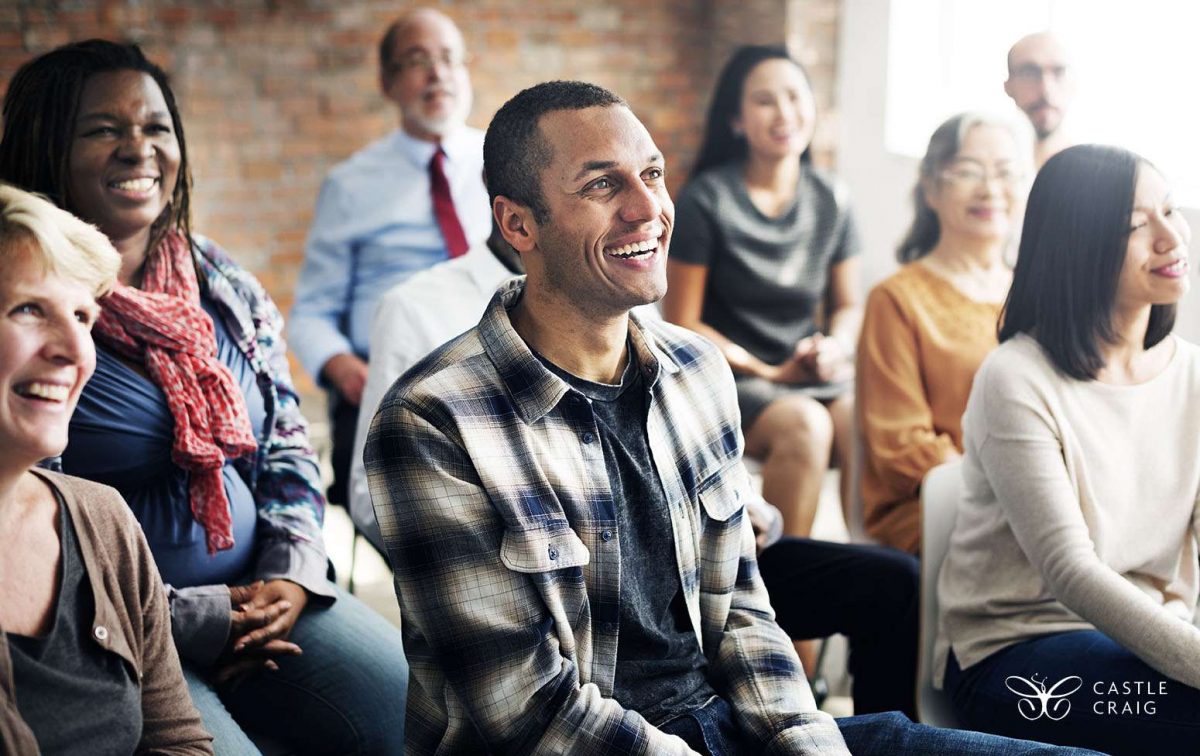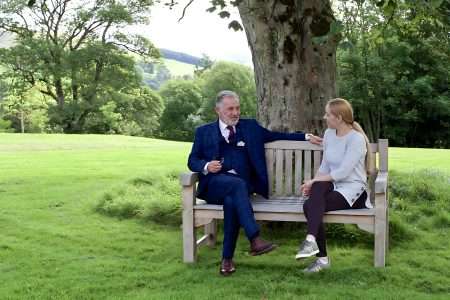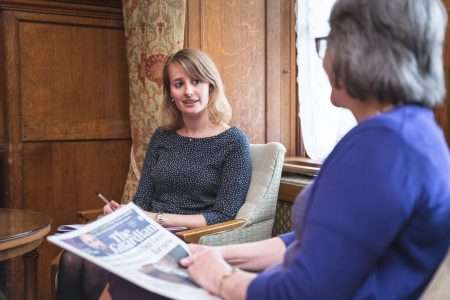What You Can Expect to Learn in Rehab
When you realise that rehab is about much more than simply stopping drinking or using drugs, you’ll start to understand its real purpose: making the lasting changes needed to leave substance use behind for good. Here are the key components of effective addiction treatment.
Rehab gives you the chance to change your life by learning practical therapeutic tools. These vital life skills replace your dependence on substances with healthier ways of coping and managing whatever life throws at you.
Are you considering rehab? Book a free addiction assessment with an admissions specialist today.
Recovery skills and tools
Recovery is an ongoing process. As they say in Alcoholics Anonymous, “We seek progress, not perfection.”
You don’t need to get everything right straight away, and you won’t master everything during your time in treatment. What matters is putting in genuine effort and continuing to build on the skills you learn. This commitment is essential for long-term sobriety.
So, what are the skills and tools?
Once you’ve completed detox and are physically stable, the real work of recovery begins through comprehensive therapy and skill-building.
Understanding Why You Used
Many people starting treatment tend to play the “blame game.” It’s natural for people with addiction to struggle with taking responsibility – finding someone or something else to blame feels much easier.
In treatment, you’ll work to uncover the real reasons behind your addiction. The truth is, everyone has difficult experiences and reasons they might turn to substances, both obvious and hidden. But not everyone becomes addicted. What’s more important than your past is understanding how you’ve been responding to problems and learning better ways to handle them in future.
The process involves recognising your personal patterns, learning to manage difficult emotions, and building a solid foundation for recovery that will support you long after treatment ends.
How therapy works is by helping you change your relationship with yourself, how you see the world around you, and the way you think about things. This can help you learn to be kinder to yourself and give yourself room to grow.
The process involves getting to know yourself better, facing up to reality, and learning to accept where you are right now. Only once you’ve done this groundwork can you start tackling the destructive thought patterns and behaviours that have been holding you back. The ultimate goal is building a healthier, more compassionate relationship with yourself.
“You can’t go back and change the beginning, but you can start where you are and change the ending.” — C.S. Lewis
1. Managing your thoughts and feelings
Challenging Unhelpful Thoughts
One of the most powerful tools you’ll learn is Cognitive Behavioural Therapy (CBT). CBT is brilliant at helping you manage your thoughts and break those spiralling, self-defeating patterns that can drag you down.
Here’s a typical example: “My boss criticised my work → he’s going to fire me → I’m not good enough → I’m going to lose my flat → I’ll be homeless → I can’t cope → what’s the point anyway → I might as well drink.”
This shows how thoughts, feelings and behaviours are all connected. When you learn to change that initial thought (“he’s going to fire me”) into something more balanced, it changes how you feel about it (“I’m not good enough”), which in turn changes what you do (“I might as well drink”).
CBT offers loads of techniques to help you understand how your mind works and how one negative thought can snowball into a wave of destructive feelings and behaviours. Many CBT sessions start with the simple question: “What’s really happening here?”
Dealing with Intense Feelings
Dialectical Behaviour Therapy (DBT) works differently from CBT but is equally helpful for managing overwhelming emotions. We often hear people say, “if you felt like me, you’d drink too.” Therapies like DBT help you regulate your emotions and create space between feeling something intense and acting on it.
Dealing with intense feelings
DBT Dialectical behaviour therapy, on the other hand, is similar to CBT but acts in a different way, to help manage intense feelings. At rehab, we often hear patients say, “if you felt like me you would drink too.” Therapies like DBT amongst others can help regulate emotions and allow space for pauses and more rational thoughts.
2. Healing trauma
Trauma literally means “wound” in Greek. Post-traumatic stress disorder occurs when the wound hasn’t healed properly. The “disorder” part refers to the side effects of living with unresolved trauma and these side effects can ultimately lead to addiction.
We offer EMDR (Eye Movement Desensitisation and Reprocessing), a therapy that helps your brain and nervous system process trauma that’s been stuck.
Trauma can be complicated. When something traumatic happens, sometimes the brain simply can’t process it properly. Instead of becoming a memory, it remains an active, painful experience—part conscious, part unconscious. EMDR helps your brain finally process what happened and heal from it.
What You’ll Get from One-to-One Therapy
Individual therapy lets you explore issues in much more detail than group work. You’ll build a relationship with your therapist that allows you to open up and express thoughts and feelings more deeply than you might in a group.
You’ll set goals to work towards during treatment. Your therapist will reflect back what they notice about your words, attitudes and behaviours, and you’ll work together on agreed areas for change. Success in therapy happens when you’re fully committed to change and actively participate.
3. Building Relationships and Connecting with Others
Rehab gives you the chance to start building proper relationships again. You’ll join a group of peers – people recovering from addiction from all walks of life – and they’ll become a great resource.
With your peers, you’ll practice new life skills, often without even realising it—things like being assertive, showing kindness, setting boundaries, or managing anger. They’ll offer support, friendship, and honest feedback about how they see you progressing.
Rehab creates a recovery community – a safe place where everyone (patients, medical staff, therapists, admin) is committed to the same goal: helping you achieve lasting, happy recovery. It’s not the real world, but it’s where you can practice and prepare for it.
4. Building Healthy Relationships: Setting Boundaries
With help from therapists and your peer group, you can start addressing problematic relationships with family, friends or partners, and learn healthier ways of dealing with people.
Sometimes someone in the group might trigger or upset you. Group therapy is brilliant for dealing with these issues first-hand and learning to overcome them. By being honest about how you feel, you start understanding what’s acceptable and what isn’t.
Your Basic Rights
Setting boundaries is about self-respect and asserting your basic human rights. You have the right to:
- Have your needs and feelings be as important as anyone else’s
- Experience and express your feelings
- Not be responsible for other people’s feelings
- Express your opinions
- Make your own choices about how you spend your time and who you spend it with
- Make mistakes without feeling humiliated
- Be treated with dignity and respect
- Be listened to and ask for what you want
- Say “I don’t understand,” “I don’t know,” or “no” without feeling guilty
- Set limits on how you’ll be treated
- Expect your boundaries to be respected
- Walk away from toxic relationships
This is often eye-opening for people from dysfunctional families or toxic relationships.
Learning to assert your rights respectfully keeps you sober and improves your self-esteem, self-acceptance, and sense of belonging. It lets you live without guilt and shame, say no to people, avoid being taken advantage of, and be human and fallible.
5. Learning True Self-Care
If you develop good, consistent self-care, your chances of staying sober increase massively. Recovery is all about healthy self-care for yourself and others.
Real self-care isn’t just bath salts and spa breaks (though those are nice too!). In recovery, self-care includes mindfulness, meditation, good nutrition, prayer, connection to a Higher Power, proper sleep, exercise, setting boundaries, and much more.
6. Creating a Healthy, Purposeful Routine
In rehab, you’ll be busy from morning to evening with therapy, recovery activities, educational talks and lectures. You’re never left alone or allowed to sleep in.
Rehab isn’t a holiday—it’s where you learn structure and routine that gives meaning to your life and purpose to your day. You’ll take this learning into your new life after treatment.
When you leave, you’ll hopefully have established successful habits that take you from strength to strength. One crucial habit is attending your local AA or NA meetings.
Other elements of early sobriety include:
- Choosing friends who support your sobriety (and avoiding those who don’t)
- Improving physical fitness through exercise and healthy eating
- Improving mental and spiritual fitness through meditation, therapy, and creativity
- Keeping busy without becoming over-stressed, taking life “one day at a time”
Remember: “Build your life around your recovery, not your recovery around your life.”
7. Relapse Prevention
Relapse is part of addiction, and if it happens to you, don’t let it knock you back. Instead, see it as a chance to learn something important. Sometimes going back to basics after a relapse is exactly what you need to get back on track.
Relapse usually happens when someone has stopped using the tools and skills they learned at the start of their recovery journey. Self-care and meetings might have been replaced with staying isolated and keeping quiet about struggles.
But here’s the thing – a relapse can actually give you valuable information. If you honestly look back at what happened before you relapsed, you can spot exactly where things went wrong. Done properly, this can be a powerful tool to stop it happening again.
Learning Essential Prevention Tools
There’s a whole range of relapse prevention techniques that are absolutely vital for early recovery. The reality is, anyone leaving rehab will face challenges to their sobriety, often within days of getting home.
These triggers might be surprisingly simple: walking past your old local and seeing mates inside, someone offering you a drink without realising you don’t drink anymore, or just feeling bored and finding your thoughts drifting to alcohol. Something like this will definitely happen.
It’s crucial that you learn the attitudes and techniques to handle these situations. Here are some proven methods you can master with practice:
- Always carry a phone number (ideally your sponsor’s, but any understanding person works) that you can ring any time your sobriety feels under threat.
- Learn to ‘banish’ drinking thoughts by focusing on something else—count the trees or clouds you can see, try to remember song lyrics, or force yourself to make a phone call (even a random number works!). Just do something to clear your mind of unhealthy thoughts.
- Carry a flashcard in your wallet—a small card designed to snap you back to reality when you’re thinking about drinking. It might have a photo of you entering rehab, your loved ones, or simply say ‘Drink kills’ or ‘Don’t do it!’
There are many other tried-and-tested methods, and these vital tools will serve you well. The early days of recovery are absolutely crucial while you’re still building new habits, so simply going home and hoping everything will work out isn’t enough.
8. The 12 Steps
The 12-step programme introduces you to:
- Spirituality and honesty
- Dealing with powerlessness and developing gratitude
- Building faith and acceptance
- Taking life one day at a time
9. Additional Holistic Tools
You’ll also learn:
Dealing with cravings and psychological dependence
Mindfulness, meditation and breathing techniques for relaxation
How to enjoy life at a slower pace
Yoga and pilates
Nutrition planning and physical fitness
How to avoid substituting one addiction for another
10. Don’t Be Afraid to Ask for Help
It’s OK to ask for help, and it’s OK not to be bulletproof.
Your friends and family may have already seen you at your worst. If they accept and love you, they probably always have and always will. Now it’s time to show them your strength.
Your 28 days in rehab is just the beginning. Recovery is for life, and whilst treatment gets you sober and starts you on the road to recovery, how you handle your future is up to you.
Final Thoughts
Recovery is one of the most challenging yet rewarding journeys you’ll ever undertake. The skills and tools you learn in rehab aren’t just about staying sober – they’re about building a life worth living. You’ll discover strengths you didn’t know you had, form genuine connections with others, and learn to treat yourself with the compassion you deserve. Recovery isn’t about perfection; it’s about progress, one day at a time. The work doesn’t end when you leave treatment, but with the right tools, ongoing support, and commitment to your wellbeing, you can build a future that’s not just free from addiction, but genuinely fulfilling. Remember, asking for help isn’t a sign of weakness – it’s the first step towards reclaiming your life.



